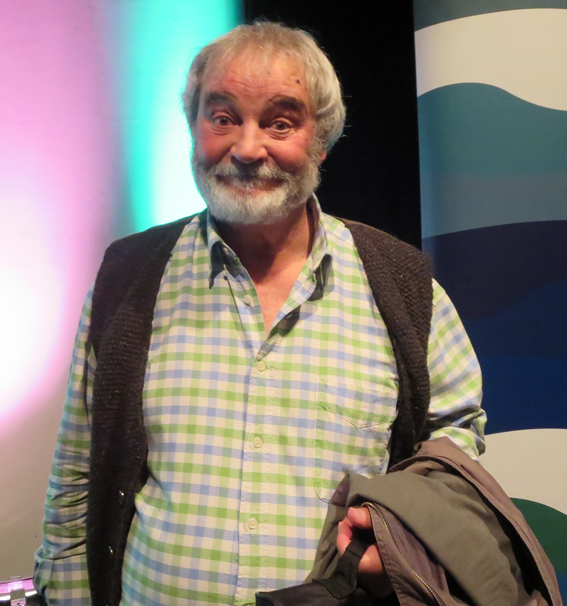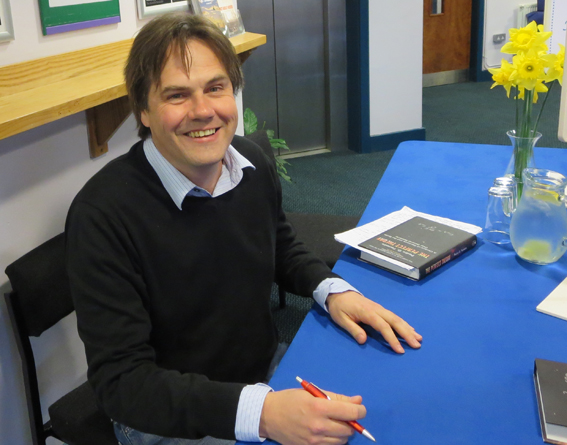 At one level it is not appropriate for me to comment on the forthcoming referendum as I am English, and proud of it. On the other hand, I have extremely close, and very dearly beloved family living north of the border, and I spend significant periods of time with them and with Scottish friends, so it is quite likely and reasonable that I should have an opinion. In any case, although we in England are not allowed to vote on something that is likely to affect us all one way or another, we are still at liberty to express our views. Like so many other people both sides of the border, I am bored with the bickering debate; but I’ve decided to have my say before it’s all over bar the crying.
At one level it is not appropriate for me to comment on the forthcoming referendum as I am English, and proud of it. On the other hand, I have extremely close, and very dearly beloved family living north of the border, and I spend significant periods of time with them and with Scottish friends, so it is quite likely and reasonable that I should have an opinion. In any case, although we in England are not allowed to vote on something that is likely to affect us all one way or another, we are still at liberty to express our views. Like so many other people both sides of the border, I am bored with the bickering debate; but I’ve decided to have my say before it’s all over bar the crying.
I have always loved Scotland. All my married life, even before it became home for part of my family, I have taken frequent holidays in practically all parts of the country, including most of the islands: the Inner and Outer Hebrides, the Orkneys and Shetlands.
In this piece I shall certainly not be trying to persuade anyone to vote either way. To be honest, I’m not even sure that I could any longer care less which way the vote goes in September. As far as I’m concerned, the harm – the very great harm – has already been done; and if Scotland wants to float off into the ether, I’m tempted to say ‘good luck to them’. And if Scotland happens to vote to maintain our special relationship, then I would like some reassurance that the campaign will not just come back in a few years’ time, with all the negative emotions continuing to rankle in the meantime. If there is any risk of that, then I for one would much rather get it over and done with now.
When the SNP campaign was first launched I did, in fact, start off quite angry, and would willingly have charged Salmond with treason or insurrection for attempting to destroy our great nation. I don’t imagine I would have managed to get him locked up in the Tower of London, but I do harbour the belief that he is guilty of treachery: not only has he worked tirelessly against the nation for the last few years, but he has also tempted other people in Scotland – including some who were born and brought up in England and might be expected to show some level of loyalty – to betray their national heritage.
That’s my rant over, and I ceased being angry some time ago, when those emotions gave way to indifference. But I am still painfully aware that all is not well between our two nations, and that one man is to blame above most others. The one thing that Salmond has achieved successfully is that, with the results predicted to be close, whichever way the vote goes, about half the population of Scotland is going to by deeply unhappy, and that can’t be good. He has probably also been responsible for two nations no longer liking each other. Either he is unaware of the discord he is creating, or maybe he just doesn’t care.
There has been a regrettable anti-English spirit abroad in parts of Scotland in recent years, and like racism anywhere else, this is ugly and dangerous. We saw it when Andy Murray made ill-considered comments about supporting anyone other than England in sport – though Andy does appear to have grown up since those heady days, and of course he cannot vote anyway because he now lives in England. But it is not uncommon to see anti-English comments in the social media, and Salmond himself seems to consider getting England thrown out of the United Nations Security Council, for instance, to be a worthy aim. Conversely, the English have tended to be rather fond of their northern neighbour; though in recent months that affection appears to have been wearing thin, as ‘the debate’ has caused English people to become first bored and then dismissive.
Anyone with even a partial knowledge of Scottish history will know that Scotland and England used to be at each other’s throats. But after centuries of war and aggression, we’ve now happily enjoyed 300 years of peace, stability and cooperation as a result of the Union. Many of us fear that this harmony could be destroyed, for any awareness of the conflicts and killings in other parts of the world must surely raise the fear that within a generation there’ll be fighting on our common border. Perhaps the various Scottish churches should get down on their knees and start praying for peace now.
Some people appear to think that independence would give Scotland a clearer identity, but I do not for a moment believe this. Different identities are of interest and relevance when they differentiate within a common reality. Within Britain, Wales, Cornwall, Yorkshire, East London and many other areas, including Scotland, have quite distinctive identities which we all appreciate and enjoy. At present haggis, highland flings and bagpipes are all considered to be a special part of British identity; but the identity of Scotland outside Britain would be of no greater interest to us than the identity of Portugal.
I was told of someone in Scotland who recently claimed that independence would not be a divorce, but a child growing up and leaving home. This is a curious perception, for I had always thought that Scotland and England were equal partners in the United Kingdom. If Scotland views itself as a child needing to grow up, that changes my perception. Perhaps, after all, I should instead view this country that I’ve always respected, as a petulant child throwing a tissy. I’ve certainly heard some very immature paranoid comments from the more extreme wing of Scottish nationalism, made by people who seem to think that England has got it in for the Scots. That’s simply not true.
Because of my family connections, I am, of course, distraught at the prospect of Scotland doing something that I consider to be so ill-advised; and I am naturally concerned that if it all goes wrong, my lovely grandchildren might suffer. But on a less personal level, I think one of the aspects of this mess that saddens me most is that so many people in Scotland appear to be assessing which of the two alternatives will benefit them most financially. Talk about selling one’s grandmother! There are good reasons for Scots to prefer to stay in the Union, principally pride in being part of a great nation – Great Britain, and all the advantages of cooperation and partnership. Beside that, counting the pennies to see which choice will win the bonus seems ignoble to say the least. The formation of the United Kingdom rescued Scotland when it was broke. It seems rather ungrateful to leave it as soon as they imagine they might be OK without us. But maybe they have just been blinded and led astray by black gold.
The English could be just as small-minded if they so chose. For instance, one of the first things I’d like to see if we gain our independence from Scotland is a reform of the clock change in autumn. Last time the question came up, the principal reason we were not able to abandon the clock change, or go onto European time, was that it would disadvantage Scottish farmers. After the split, this would no longer be an issue for us. We would also be rid of the Barnett formula, and no longer have to smile at the Scottish joke that Scottish money grows on English trees. But as with the financial considerations of the Scots mentioned above, I think these facts and fancies are unworthy of the seriousness of what is being considered in terms of the breaking up of a nation.
One of the excuses given by the ‘yes’ campaigners is that they don’t like David Cameron’s government. Join the club! Well over half of us in the rest of Britain don’t like the Conservatives either. But we grit our teeth and continue to believe in the democratic process. If you think the government is wrong, then please stay and help us defeat them next time round. The idea of a democracy is not that we should stick with it when it suits us, and hive off when it doesn’t.
If Salmond wins the referendum, there will be a messy period as we disentangle, after which I suspect that the rest of Britain will just forget about Scotland on the basis that they’ve made their bed and can lie in it. And if, in a few years’ time, it all goes wrong for the independent Scotland, it’s unlikely that Britain will be keen to play the part of the prodigal son’s father.
Some will say that if Salmond and his followers are so disenchanted with the rest of us, then good riddance to them. I understand that sentiment, but I also feel really sorry for all those loyal citizens who don’t want to destroy Great Britain and who are proud to identify themselves as British and Scottish. Already seven hundred thousand Scottish people have said that they would like to leave Scotland if the vote goes in favour of independence. That’s more or less equivalent to the Polish immigration of a few years ago, which was managed quite well, so I hope we in other parts of the United Kingdom will be quick to welcome and accommodate them if they move south.
But the real work comes if the Scots decide to remain in the Union. Can those who have campaigned so vociferously for leaving the flock work to mend the relationship? Can the English learn, at last, to use more inclusive language rather than equating Britain with England? Words matter, and many people south of the border have been too cavalier in speaking of England as though it were Great Britain. Can we all decide to work for common goals, rather than mistrusting each other and bickering like naughty children? Can we all forgive this damaging campaign and live at peace again?
So much harm has been done in the last two years that it’s going to take determination and charity on both sides to mend our relationship. Let’s hope that together we can achieve it.
In the meantime, of course, I still love and support the members of my family who happen to live north of the border; and I’m also still fond of the Scottish islands.
1 Comment








